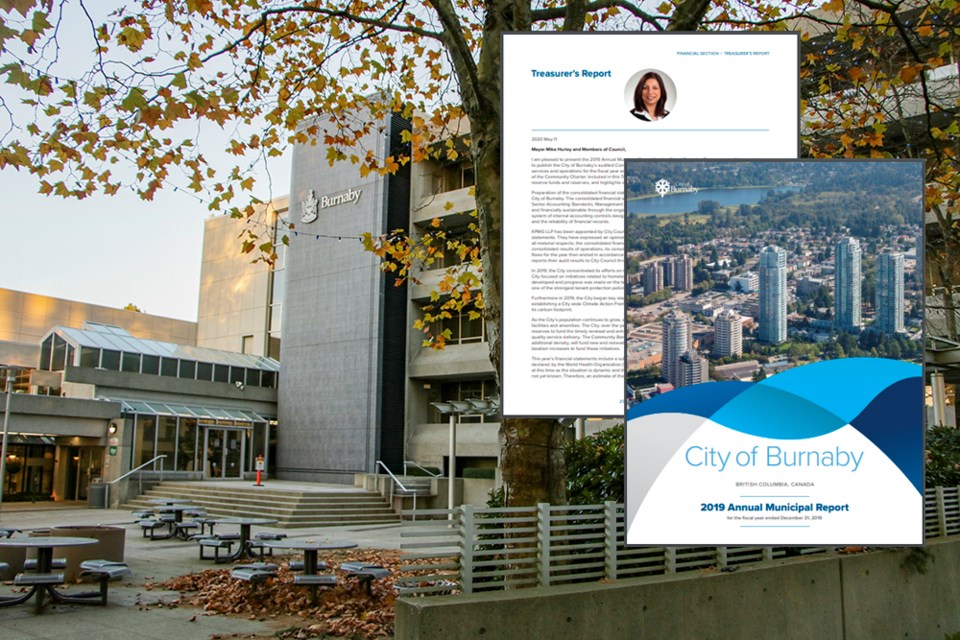The City of Burnaby’s net worth increased by $112.9 million in 2019 – roughly three-fifths of the surplus projected in that year’s budget, according to financial documents posted online.
The city’s total accumulated surplus – in other words, the sum of all of its assets minus liabilities – totalled just over $4.5 billion by the end of 2019, according to the consolidated statement of financial position, one component of the annual municipal report.
That includes $1.6 billion in financial assets and $2.9 billion in non-financial assets, including buildings, property and other things owned by the city.
The city had budgeted for a $185.3 million surplus in the 2019 budget but came out of the year with a $46.1 million surplus in financial assets and $66.8 million in non-financial assets.
While $113 million may seem like a large number, that is less than a third of the 2018 surplus, valued at $367.2 million.
The drop, according to the city’s director of finance, Noreen Kassam, was largely due to the city not taking in any community benefit bonus contributions from developers last year. That was due to changes in policies and the state of the regional real estate market, Kassam wrote in the report.
The city’s $473 million in expenses increased by $32 million last year, due in large part to increases in the collective agreement with the union, RCMP contract costs and regional water and sewage charges.
The value of the city’s famously deep reserve funds rose by roughly 2.5% last year to over $1.6 billion. According to Kassam’s report, more than 93% of that is in capital reserves – money restricted to projects like community amenities and infrastructure.
“The city’s strong reserves provide liquidity and flexibility to council, enabling it to advance capital projects and provide new programs and services to support Burnaby citizens,” Kassam wrote in her report.
While the city’s capital reserves total around $1.5 billion – an enviable pool of funds for most cities – its five-year capital plan includes roughly $1.5 billion in spending.
While that spending almost certainly won’t deplete those reserves, as the city will likely be able to fund much of its capital projects with other sources of revenues, it does provide the city the ability to commit to that much of an investment in the community with a fair bit of confidence.



